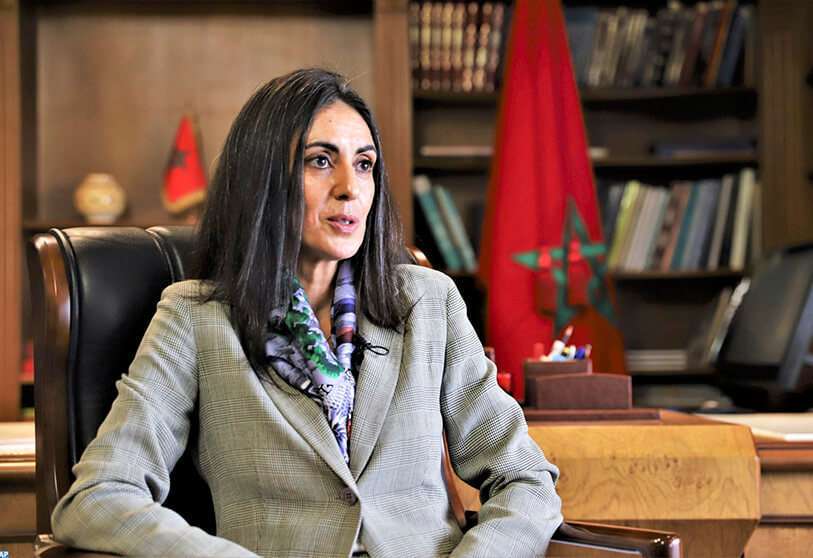Nadia Fattah, la primera mujer al frente de la economía marroquí

After ten years of leadership by the Justice and Development Party, the Moroccan people decided that it was time for change and that Aziz Ajanuch should take the reins of the Kingdom. The announcement of the new government by King Mohammed VI has brought with it important developments for the future of the country. One of the most important will be the presence of up to seven women at the head of different ministries, representing a third of the total number of portfolios, with the arrival of Nadia Fattah at the Ministry of Economy and Finance being a major novelty.
The former Minister of Tourism has made history by becoming the first woman in the history of the Alawi kingdom to head the Ministry of Finance. This milestone is a clear sign of Morocco's desire to continue advancing equality, especially in a post-pandemic context where the economy is one of the key issues. The confidence placed in Fattah represents the esteem and worth of a woman who, despite coming from the tourism sector, has extensive financial knowledge, having studied at the Ecole des Hautes Etudes de Commerce in Paris in 1994.

She also has a long professional career, having started in the private sector as Head of Mergers and Acquisitions Operations for Africa and the Middle East in an insurance company. She later became a consultant for the Arthur Anderson Foundation, a company specialising in financial auditing. She also founded Maroc Invest Finance Group, a company working in the field of investment funds and corporate finance, affiliated to the "Tininvest" group. She was its general manager until 2004, showing an important performance in the economic field for which she will now be responsible for the whole of Morocco.
Despite the changes Mohammed VI has made to the ministerial portfolios, the structure has not changed much from the existing ones. Key figures such as Nasser Bourita at the head of the foreign ministry have been retained, as the monarch's intention is to "continue with the development process, facing external challenges". However, it is true that the new government will not include any Islamists. In fact, the government team that will lead Morocco for the next five years is characterised by the presence of a large number of technocrats, starting with President Aziz Ajanuch himself.

The historic appointment of Nadia Fattah to head the Ministry of Economy and Finance is perhaps the most important of the Kingdom's seven female ministers. Fatima Zahra al-Mansouri, the mayor of Marrakech, has also been added to this list as Minister of Tourism, a post left vacant by Fattah herself. In addition, the Ministry of Health, another of the most important ministries at the moment due to the pandemic that, albeit to a lesser extent, continues to hit the Moroccan people, will be headed by Nabila Mounib, mayoress, like al-Mansouri, but in her case of Casablanca.
The list of women at the head of the various ministries is completed by Leila Benali as Minister of Energy Transition and Sustainable Development, Ghaith Mazor as Deputy Minister to cover digital transformation and administrative reform, Khadija Ezzoumi as Minister of Women, Family and Social Inclusion, and Younis Al-Sakuri at the head of the Ministry of Peoples and Economic Integration. This group of women will represent a third of Morocco's ministerial portfolios, marking the beginning of a new chapter in the history of the Alawite kingdom.









